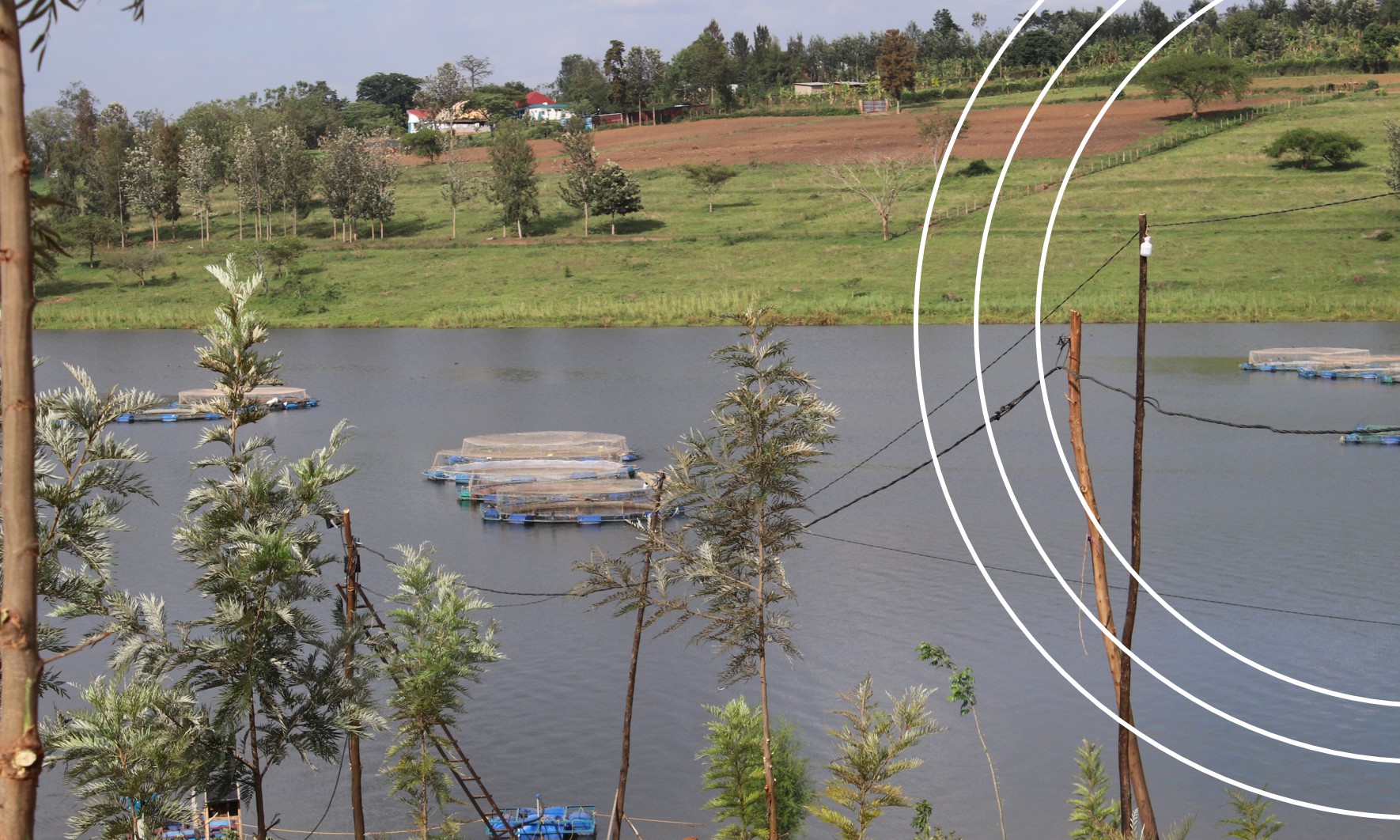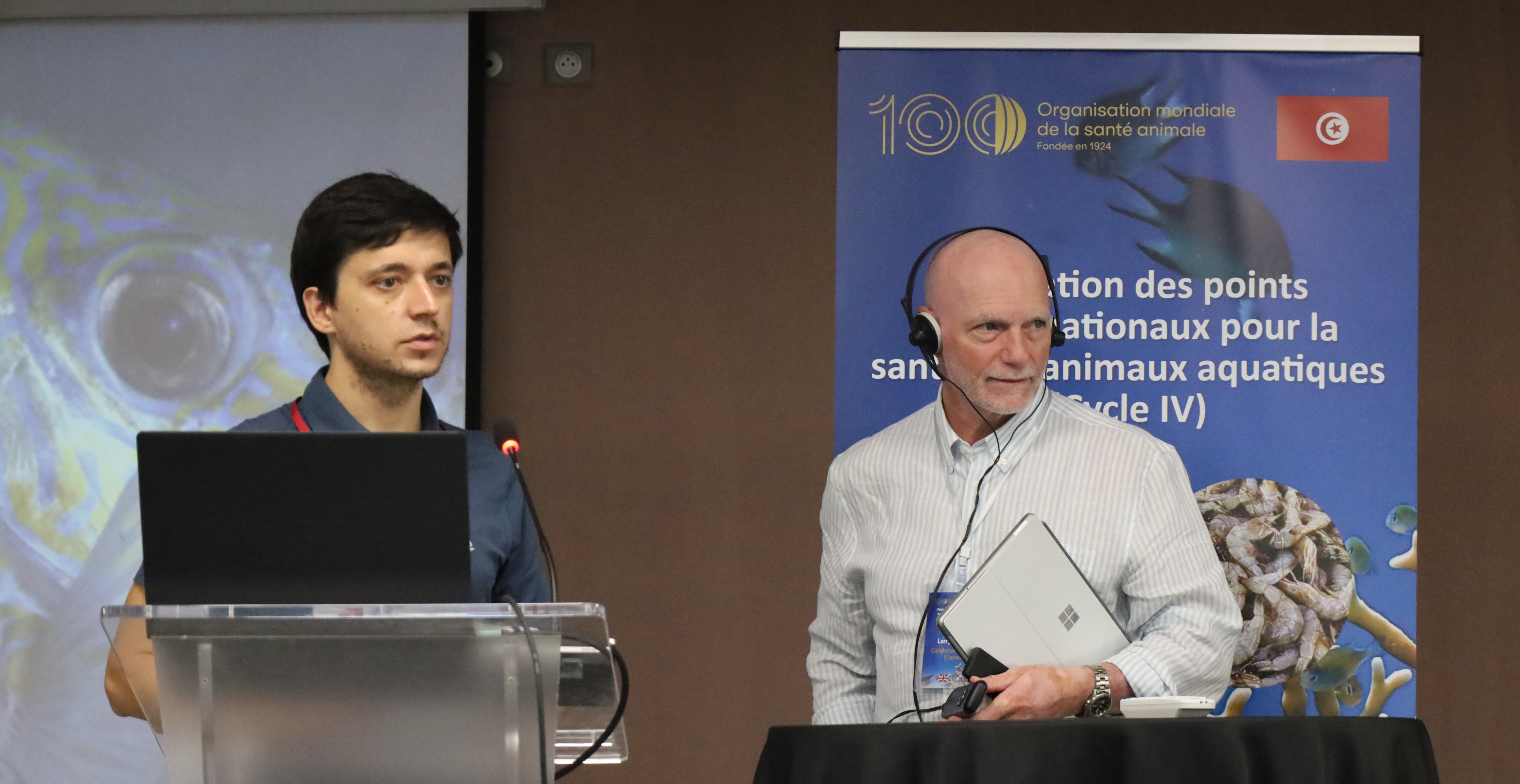
The main goal for the training of (the French-speaking Members) was to engage with the National Focal Points (FP) after a 6-year hiatus. The last Focal Point training, benefiting French language speakers, took place in 2018 in Dar es Salaam, Tanzania.
To begin, the preliminary discussions led by the various experts decided to take a horizontal approach to delivering the training content on “standards development” and “standards implementation,” which are tools available from WOAH to support the implementation and compliance with standards, the global framework provided by the Global Strategy.
During the meeting, participants were able to share their experiences through group discussions, which were held for the first time to account for the concept of shared water bodies. This gave the participants an opportunity to discuss the consequences of introducing a disease in water bodies shared with neighboring countries, through self-declaration mechanisms. To supplement the discussions, the WOAH Observatory Annual Report 2022 was used as an information source.
Furthermore, the meeting allowed members to discuss the outcomes of three Regional Aquatic Animal Health Network meetings in Northern and Southern Africa, as well as for Laboratories. This was made possible with support from AU-IBAR.
The training was held in Tunis, Tunisia, from 8 to 10 July 2024 and was attended by 16 WOAH Focal Points for aquatic animals from 16 (French-speaking) African countries.
Participants engaging with the facilitator during the training workshop.
Besides WOAH regional (Tunis) and head office staff (World Animal Health Information and Analysis Department, Standards Department, capacity Building Department Paris), contributions were made by seven international experts (in alphabetical order) : Shimaa Elsayed Mohamed Ali (Norway), Mickael Teixeira Alves (UK), Charles Caraguel (Australia), Nadia Cherif (Tunisia), Kevin Christison (South Africa), Larry Hammell (Canada), Marc le Groumellec (Madagascar/France), Andrea Marsella (Italy), Anna Toffan (Italy), along with one African Union (AU-IBAR) regional expert : Mrs. Nelly Isyagi (Uganda, pre-recorded presentation) and UEMOA expert: Mr. Sidy Ndiaye. Both FAO and WorldFish were represented: FAO, Ms. Melba Reantaso (pre-recorded presentation); WorldFish Mr. Jérôme Delamare-Deboutteville (Malaysia office). Also represented were the SARNISSA network through its moderator Mr William Leschen, and the Rural Fisheries Programme of the Department of Ichtyology and Fisheries Science at Rhodes University, South Africa, through Mr. Qurban Rouhani.
In total, 34 presentations were delivered, as well as a working group session, focusing on the use of passive surveillance (article 1.4.8 WOAH Aquatic Animal Health Code – Aquatic Code Online Access – WOAH – World Organisation for Animal Health) to develop an early detection system to assess the likelihood of the country being free of disease and draw up a self-declaration dossier, or to develop an epidemiological investigation to demonstrate the absence of a disease.
The two infections provided as examples were Tilapia Lake Virus (TiLV) and Infectious Spleen and Kidney Necrosis Virus (ISKN). The use of MentiMeter™ surveys and quizzes led to interesting insights into the views and level of knowledge of the participants. In certain cases, the outputs allowed for a direct comparison with those of the recently held training for WOAH- Asia Pacific Region, and English-speaking African countries. On the final afternoon of the training, a field visit was scheduled. Participants had the opportunity to tour a commercial seabream offshore farm in Nabeul (Medora Fish Farm).



